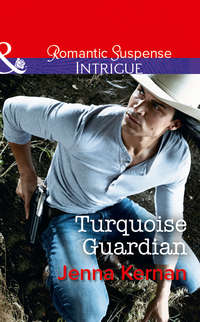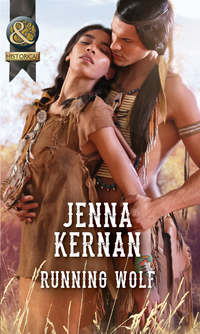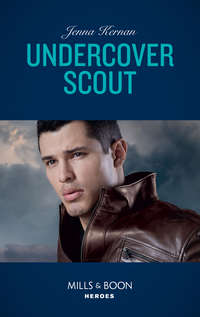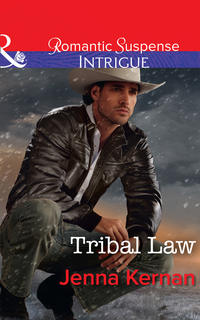
Полная версия
Shadow Wolf
Finally, Margie stopped talking so Lea could speak.
“Dead,” she squeaked. Was that even her voice? It sounded completely unfamiliar to her own ears.
“What? What was that? Repeat.”
“He shot them. They’re dead.”
“Who’s dead? Lea, where are you?”
She told her.
“Indian land? What are you doing there? We have no stations there. It’s too dangerous. Lea, that’s where the cartels are moving.”
“I-it’s on the map.” She blinked, glancing up at the clear blue sky that had no more pity for her than for the migrants who’d tried to cross the desert.
“What map? Oh, no! Where did you get it?” asked Margie. “Are you hurt?”
A man stepped into view, blocking the sky. He looked tough and dangerous.
The radio slipped from Lea’s fingers as she opened her mouth and screamed.
The door swung open as the air left her lungs. She scrambled onto the seat, bounced off the steering wheel and smacked into the closed driver’s-side door.
“I’m not him,” said the stranger. “Look at me. I’m not him.”
She did look at him. He had a rifle slung over his shoulder and a pistol in his hand. He wore body armor and an expression of fury. His dark eyes narrowed as she clung to the door latch, deciding if she should run or face him. He looked fit and heavily muscled and far bigger than she was.
“B-border patrol?” she asked, her voice going all airy and breathless. She felt dizzy as she dragged scorching desert air into her lungs.
He gave a quick shake of his head that sent his single braid flashing over his shoulder before it snapped back like a whip. Then he rotated his torso and tapped the patch on his tan-colored shirt. “Shadow Wolves. I’m with ICE. The good guys.”
Good guys? Right. To some, he was a worse sight than the cartels. Immigration and Customs Enforcement, the ones who hunted the immigrants like prey. She knew about the Shadow Wolves, of course. Their reputations preceded them.
“Are you injured?”
The humming in her ears made his words hard to understand. He waited for her reply but she only blinked stupidly at him, past the spots that danced in front of her eyes like fireflies. He reached a large hand in her direction and she pulled the latch, falling backward into space and hitting the ground hard. But not so hard that she couldn’t roll, which she did, under the truck.
This unfortunately put her at the same level as the bodies. My God, she thought, this morning they were alive with dreams and a future. Now they were carrion bloating in the heat. How long before the buzzards found them?
Lea began to cry. The passenger door slammed and the man’s footwear crunched as he took two steps along the side of the truck. He didn’t wear the usual hiking boots or the army boots many of the border patrol officers wore.
Lea stopped crying. She knew those moccasins, or she knew what they represented. The upturned decorative toe-tab marked them and the wearer. The boots were high, to protect against the ever-present rattlesnakes and thorny vegetation, but soft and supple. Cactus kickers, her father called them. The man was not only an Indian. He was Apache, like her.
“How long you gonna stay under there?” the man asked. His voice held a hint of irritation.
She switched to Apache and asked him his tribe.
He squatted, resting on one knee to peer beneath the vehicle at her as he answered in Athabascan, speaking in the formal way of introductions. His voice was rich and deep and held a calm that made it easier for her to breathe.
“I’m Kino Cosen. My parents are Tessa and Henry Cosen. I am Bear Clan, born of Eagle. How are you called?”
“Lea Altaha.” Her voice shook only a little now. She hesitated, her lips pressing together as she decided what to say. “My parents are Oscar and Maria Altaha. I am...” Her words fell off. I am nothing. No one. The familiar shame seized her but she pushed it away.
“Salt River?” he asked, correctly guessing at her origins.
“Yes.”
“I’m Black Mountain,” he said. The two reservations were once one but had been divided east to west. Black Mountain had the higher elevation, good water, terrain and plenty of wildlife. But Salt River had more lakes, one formed by the Salt River dam, and so was considered a fisherman’s paradise. Both tribes had a cultural center, casino and various other forms of tourism. More important, he was Western Apache, where her rez was a mix of Apache tribes.
* * *
SHE MET HIS gaze now, looking into those dark eyes. He wore his hair in a single braid, a traditional style for a man roughly her age.
“I am honored to meet you, Lea,” he said and offered his hand.
She took it and he helped her scramble out from beneath the truck. When she was standing in front of him, she realized he was a good deal taller than she expected and far better looking. He had that rare combination of earnestness and intensity in his gaze that held her captive. His features were classic with a broad nose, full mouth and a jaw that looked strong enough to take a hit. Her stomach fluttered as she realized what was happening between them. The heat and absolute stillness seemed to charge the air, like the electricity before a storm. Their clasped hands tightened as they each stepped closer. Oh, this was bad.
She stepped back, breaking the connection between them and wiping her tingling palm upon the denim of her jeans. This was not the time or place for mooning over a man. She rubbed the hand that so recently clasped his across the back of her neck. It didn’t ease her discomfort. Was it because he stood a little too close?
The jitters came back and she felt as if someone were running an electric current through her. She leaned heavily against her truck but the heat of the metal made her spring away, straight into his arms. He enfolded her against him and she realized to her chagrin that she could no longer stand without his help because her knees had given way. He opened the passenger’s-side door and eased her onto the seat.
She glanced at the carnage all around her and pressed both hands over her eyes. When she removed them, the bodies were still there.
“Someone was shooting at me,” she said.
“Yeah,” he said. “That was me.”
Chapter Three
Kino paused, pistol holstered, rifle slung over his shoulder and body armor sticking to his back as he considered what to do with this woman. He should take her in, but that would mean paperwork and he hated paperwork.
The woman stared at Kino as a mixture of shock and fear played across her features. She was smaller than he’d first judged, smaller than most of the women on his rez. And now, as he looked at her face, he saw that even pale and dusty as she was from her ordeal that her features seemed a blending of Native blood with some other race. Even dirty, there was no denying that she was a beauty.
Lea Altaha seemed to be recovering because color was now rapidly returning to her face. Her eyes glittered dangerously. Kino’s body reacted to the challenge in her gaze, though not as he expected. His emotions flicked from anger at her interference to complete awareness of her as a woman. Now, with her color high, her nostrils flaring and her brow sloping down over her large dark eyes, she looked fierce and wild and sexy as hell. The tight T-shirt publicized an aid organization—Oasis—but also served to advertise a killer body. The thin cotton and her tight faded jeans hugged her dangerous curves. She wore high boots, as anyone with sense would out here. She also had a water bottle and a folded utility knife strapped to her tooled leather belt. The buckle was large and silver with a thundercloud symbol on the front. Appropriate, he thought, for clearly there was some kind of storm building between them.
She lifted her hand to point a finger at him as if his words had just registered in her mind.
“You!” She slid from the seat, her voice and posture all accusation as she stood, chin high and brow low. Even angry she was adorable, he thought, like a startled kitten. “You could have killed me.”
“I could have. But I was aiming at your windshield.” He pointed at the space where the glass had been. “Your rearview and then your side mirror.”
And he had hit them all in that order. It was a point of pride, his accuracy with a rifle.
“What is wrong with you?”
“That man was gonna shoot you. Yeah? Like he killed them.” He thumbed over his shoulder. “I stopped him.”
He judged from her widening eyes that she knew what was behind him.
Her shoulders slumped and the color washed from her face. She started shaking again and leaned back against the seat behind her.
“He was,” she whispered. “And you were trying to shoot him?”
Kino’s jaw bulged. He took a moment to push down the fury. His chance, come and gone. Would he ever have that chance again?
“I was. Until you blundered into my shot.” He pointed to the ridge of rock some hundred yards back and twenty feet higher in elevation.
She looked at the place he indicated and then at the windshield. Finally she looked at him. Her mouth opened and then closed as she worked it out.
“I blocked your shot.”
He nodded.
She was covering her eyes with her hands again. The silver-and-turquoise jewelry on her right wrist and fingers shone bright in the sun. There was no jewelry on her left hand.
Why was he even checking?
He knew exactly why. He was attracted but he had a policy of never hunting in another man’s territory. But she was too attractive for him not to notice. Still, he didn’t know if he would ever forgive her for bumbling into his hunt. Likely that didn’t mean he wouldn’t sleep with her if she gave him the chance. He’d have to be dead not to want her. She was stunning, really. The tingle of desire prickled through him. He sighed and forced his thoughts back to the hunt, the important hunt, the one for the Viper.
“Did you get a good look at him?”
She nodded, pressing her hand over her mouth as if trying not to be sick. She gagged but held down whatever was threatening to come up.
“Close your eyes. Think about that face.”
She shook her head as if unwilling to remember.
“It’s important.”
“Because he killed these men?”
Kino waved a hand in the direction of the corpses. “These men are smugglers.”
She cocked her head as if she did not believe his words or understand them. “These men are people, with families.”
He gritted his teeth. “Right. Fine. But the shooter. Please, try to picture him.”
“I don’t have to close my eyes to picture him. I’ll never forget that face. He was three feet in front of me and he was aiming a rifle at my heart.”
“Do you know him?”
“I’ve never seen him before.”
Kino exhaled in frustration. All he knew from his own observation was that the man was white and driving a red truck while wearing a stained cowboy hat. Oh, and that he chewed tobacco. It didn’t narrow the field much.
“What are you doing here?” Kino asked. “There’s not supposed to be any water stations on tribal land.”
She glanced around. “I was just following my map.”
Clueless or a liar? As he tried to decide, Kino took a page from his older brother Gabe’s book. Gabe was the chief of tribal police back on Black Mountain and often said, “If a suspect’s lips are moving, assume they are lying.” If she knew where she was, then she also knew that the tribe had pulled the plug on Oasis and their little water parties.
“Where is your partner? I thought you guys always traveled in pairs.”
“I...I have special permission.”
“That’s bull.”
Her failure to meet his gaze confirmed it. The way she shifted in place and worried the turquoise ring on her index finger made him think that she was lying. If she’d lie about this, she might be lying about not knowing the perp or, worse, she might be working with him.
“Okay. I’m detaining you.”
“What! Why?”
“Because you’re a witness. Plus, you’re lying to me, Miss Altaha, and I don’t like being lied to.”
“Okay. Look, I know this area is usually off-limits. But I’m Apache and—”
“Not Apache land.”
Kino knew that damned well because border patrol wasn’t allowed to be here, either. They had to be invited. That was probably why BP was always pumping their captain for information. Because only the Shadow Wolves had permission to pursue traffickers onto sacred lands.
He glanced at the men lying still and baking with the rocks that littered the thirsty ground. How did anyone live in a place so dry?
“Maybe you were here to meet them.”
“I wasn’t. I’m here to check this station and add water.”
“I thought the O’odham wanted the stations removed from their land.”
“Yes, but the migrants—”
“Smugglers,” he corrected.
“No. Migrants. They’re crossing here and they are dying here.”
“Yeah, less security here, no fences. Makes it easier.”
“Easier? To cross a desert in June? Thirteen bodies only last week. One of them was a nine-year-old girl.”
Almost the same age as his sister, he realized. Lea had scored a point and this time it was Kino who glanced away. But her voice followed him.
“Have you ever tried to cross this desert without water?”
No one could. He gave his own water bottle a flick. It was only half-full but they always carried extra in the truck.
“Did you ever think that if there were no water stations, they might not be so willing to take the chance? How many come because they expect to find Oasis and missed your water stations by a few hundred yards?”
She pressed her lips together and the corners of her mouth tugged down. “We save lives.”
“Maybe. But how many have you cost?”
“You don’t care. If you did, you wouldn’t be working for the Feds.” It was an old resentment that went all the way back to Fort Apache. His people had acted as scouts and trackers. His people had worked with the Americans and had helped them find Geronimo. In exchange they had remained on their land instead of being relocated to Oklahoma. But so had hers. So she had no rights to the “us against them” argument.
“I’m working for myself.”
“Shadow Wolf. That’s what you are, right? Special consultant, tracking the ones the Americans can’t find.”
“What’s wrong with that?”
“Not our business. The Spanish, the Mexicans and then the Americans. They all tried to take this land. It’s ours.”
“So why are you helping the Mexicans?”
“They’re people. Not Mexicans. Not illegals. People. Women, children, desperately poor who have it so bad back there—” she gestured south “—that they’ll take their lives in their hands to cross this. That’s who I am helping.”
“And drug smugglers and the cartel.”
“They have trucks, planes and ATVs.”
Kino pointed at the bodies just past her line of sight. “Not those four. They stopped here, for water. A natural meeting place.”
She stared him down. “And a place for hunters to overtake their prey. Always has been. Isn’t that right?”
Kino glanced down the road to where it disappeared into the scrub and cactus. Where was his brother and the damned truck?
The buzz of insects dragged his attention back to the bodies. The flies had already found them. Buzzards would be next. He had to call it in.
He lifted his radio and relayed to the captain the important details, including their location. These bodies meant that border patrol would have to be called because they were the ones with the body bags and the refrigerated truck to transport them. His captain was thirty minutes out.
“What are you going to do with me?” she asked.
“I’m detaining you for questioning.”
Kino turned to Lea and offered his hand. She took it and slid off the seat, bringing with her a shower of broken glass. Her grip was strong, as if he were all that kept her anchored. He walked her to the rear of the pickup, watching her as she scanned the ground, getting a closer look at the bodies.
“Holy smokes,” she whispered.
“Yeah. You’re a lucky woman. But you should think about carrying a gun. A rifle at least.”
She did not take even an instant to consider it but shook her head.
“A pistol, then. Not just for traffickers. There are rattlers out here. Big ones. And Gila monsters. Though you have to be pretty slow to be bitten by one of those.”
She shivered and folded her arms across her as if that could protect her from bullets. It wouldn’t.
“If I hadn’t stopped him, you’d have joined them. I can get you a rifle, help you pick one out. Teach you how to shoot, if you like.”
“No, thank you.”
“Why not?”
“I’m a pacifist.”
“You’re a what?”
“I don’t believe in violence of any sort. And I don’t believe in shooting at people for any reason.” She stared right at him as she spoke, her words an accusation.
The ungrateful thing, he thought. “So you would have just let him shoot you? Wouldn’t even fight back?”
“That’s right.”
Kino shook his head, still disbelieving. How could anyone just stand there and let someone kill them without making even the most basic attempt to save themselves?
“I don’t understand,” he said.
“Most folks don’t.”
She dusted away the shards of glass still clinging to the folds of her T-shirt. He retrieved a glittering piece from her hair. Then he lowered the truck gate and grasped her lightly around the waist before boosting her to a seat. His hands lingered on her until she glanced at where he held her. Then he pulled away, stepping back. What was wrong with him?
“The water,” she said, looking back at the barrels. “I have to fill them.” The clear plastic water tank that occupied the last third of her truck bed looked as though it held 200 gallons or more and she had additional barrels, a pump, hose and electric hose reel.
“Nice setup.”
She scrambled to her feet to retrieve the hose.
“Lea?”
She paused, yellow hose in hand.
“This is a crime scene. You can’t fill those tanks. Plus, I know from one of the tribal council leaders, Sam Mangan, that the Tohono O’odham requested that all stations on tribal land be removed.”
Her shoulders slumped but she released the hose and returned to him, sitting on the open gate.
“Why did they do that? Some of their tribe lives on the Mexico side.”
In answer he pointed toward the bodies. “The smugglers leave a mess.”
“They’re not all smugglers.”
“I know that. But they’re all uninvited.”
“Like the Spanish and the Americans?”
Just then Kino picked up the sound of an engine. A moment later he saw the rooster tail of dust. He dragged Lea unceremoniously off the gate and shoved her behind the side of the truck bed. Then he swung his rifle out in front of him and rested it on the running board, taking aim.
“Stay behind the tire,” he ordered.
“Is he coming back?”
Kino gazed through the scope at the approaching vehicle. Was that his brother Clay or the Viper?
Chapter Four
The SUV emerged from the maze of sage and cactus. Kino blew away a breath and straightened as he recognized the vehicle.
“That’s my big brother Clay,” said Kino.
Lea stood on wobbly legs and he gripped her elbow to keep her from losing her balance. He held her long enough for her to regain her equilibrium and for him to lose his. She was a witness, an aid worker and a pacifist. Any one of those should be enough to send him running in the opposite direction. But they weren’t. Not even close. His hand tingled at the point where his fingers circled her bare arm, sending an electric sizzle of heat through him. He told himself to let go and didn’t.
Their eyes met and held. She could be only his witness, nothing more. He knew that, because he wasn’t getting mixed up with someone who spent her spare time breaking the law and wandering the desert alone without even a rifle for protection.
“You all right?” he asked, his hand relaying the softness and smooth texture of her skin.
“No,” she said and reclaimed custody of her arm.
Was she coming to the realization that her efforts might be helping the drug smugglers? That the reason they were in this very spot was because of her water station? Or was she just now realizing how close she had come to oblivion?
“I’m taking you in to headquarters at Cardon. We need a statement.”
She stepped farther away and rubbed the place where he had touched her as if to remove all memory of the contact. He noted the flush in her cheeks. Was it the heat of the day or their contact that caused that bloom of color?
“You’re detaining me?”
“Until we have your statement. They’ll interview you at Cardon.”
“Who will?”
“Border patrol.”
“I hate those guys,” she muttered and then said to him, “I’ve got to radio Oasis.” She patted the back pockets of her jeans and came up empty. Her eyes widened. “Oh, no, I was talking to her when this happened.”
She rushed back to the cab and searched for the radio from where it had fallen behind the driver’s seat as Clay pulled up, covering them with a fresh wave of grit and dust.
Kino went to speak to Clay, leaving Lea to her radio and check-in.
Clay pulled up in front of her truck.
“Any sign of him?” asked Kino.
“I’m sure there is. Everything that moves leaves a sign. But he was gone by the time I found the access road. What do you want to do?”
What Kino wanted was another shot, to go back in time and have Lea arrive ten seconds later. He looked toward the woman, scrambling in her truck to retrieve her radio. She’d seen the shooter’s face. The Viper. She could identify him.
Clay followed the direction of Kino’s gaze. “She okay?”
“Shaken.”
Clay nodded. “Understandable. So, do we chase him or question her?”
The need to hunt warred with the need to protect this woman who seemed to have no self-preservation instinct of her own.
“Her,” he said.
“Okay, then. We can wait for BP and then go cut for sign.”
Clay’s and Kino’s radios came alive simultaneously as their captain called in.
“Clay? Kino? Over.”
Clay lifted the radio. “Here, sir.”
“Border patrol is requesting you meet them at the closest access point. If you aren’t there, they’ll miss it.”
“No doubt,” muttered Kino.
“Yes, sir.” Clay glanced at Kino, who nodded. “On my way.”
“Can either of you identify the shooter?” asked Captain Rubio.
“Negative. Only witness is Miss Altaha.”
“From Oasis?”
“Affirmative.”
“Okay. Bring her for pickup by BP in twenty.”
“En route.”
Clay hooked his radio back on his shoulder and met Kino’s gaze. “I’m calling Councilman Mangan. He’ll want tribal representatives here.”
“Satellite phone’s in the car,” said Kino. “I’ll get Altaha.”
As he turned to collect their witness, he glanced at the four bodies. He had considered them no more than collateral damage, pawns in this game of chess. They weren’t the first to be killed execution style, stripped of the drugs and then left to rot. But they were the first he’d really noticed. He had his witness to thank for that.
What had she said—that they were people? He looked at them—really looked for the first time. The men were thin, dust-covered, wearing old trousers and new camo shirts provided for their journey. Their feet were sheathed in the odd shoes sewn from sections of carpet to obscure their prints from trackers like him. They’d been hired to carry a load with promises that it would earn them their passage. Instead they had earned a body bag. They’d been used and discarded, as if they were nothing more than the empty water jugs they had carried. Kino admitted to himself that he had used them, too. For him, they had been just a means to find the Viper.







